Baby squirrels bound for the wild
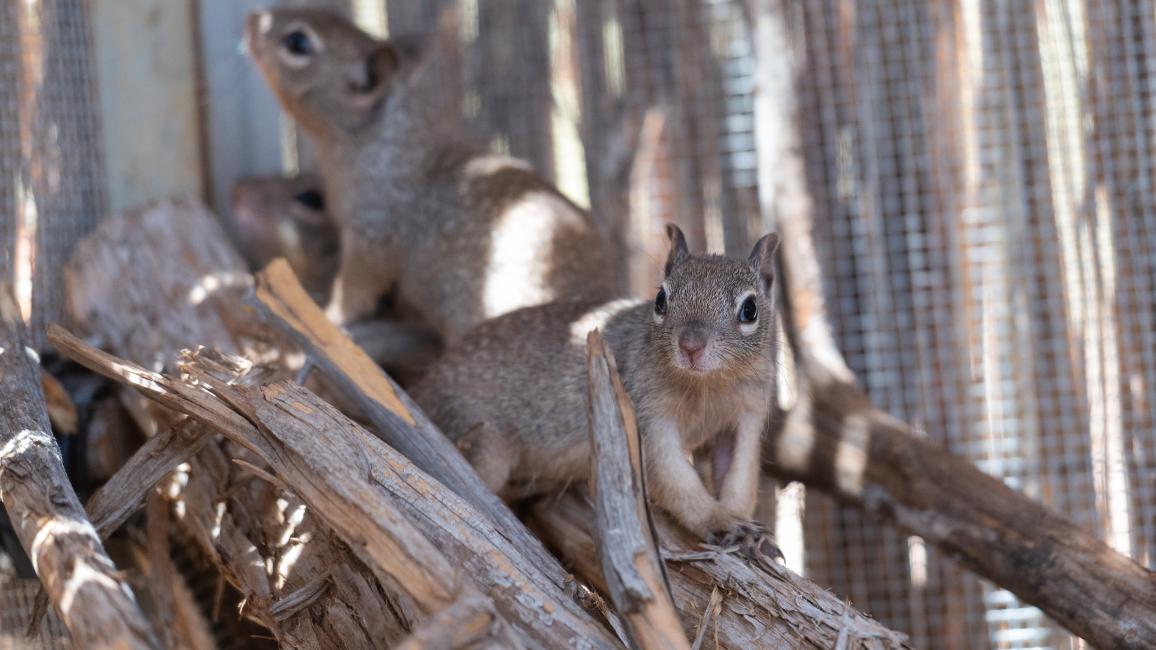
There they were — two baby rock squirrels huddled together under a porch. Just the day before, sadly, the homeowner, a resident of Escalante, Utah, had come across a squirrel in the road who’d been hit by a car.
Putting two and two together, she was afraid the two babies had lost their mother.
She certainly didn’t want to kidnap another mother squirrel’s babies, so she watched and waited for some time. Still there was no sign of a mother, and it looked certain that these two babies were indeed orphaned.
She called Wild Friends, the wildlife rehabilitation center at Best Friends Animal Society, and asked for advice. Lauren Ross, wildlife sub-permittee, agreed with her that the babies needed help.
[Wildlife Rehabilitator: How to Find One]
The kind woman drove the little squirrels from several hours away to meet Lauren late that morning.
Lauren transferred the two babies from a bucket into a carrier and headed back. Arriving back by noon, she began right away to assess and care for the two little orphans. Their eyes were open, but their ears were still closed. Lauren could tell that they were around five to six weeks old. Both were dehydrated. One stayed quiet and the other was a bit livelier, squeaking at Lauren as she worked. She got them both rehydrated, fed and settled in.
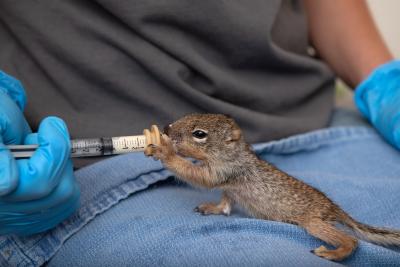
Two becomes four
The next day, though, Lauren was surprised to get another call from the good Samaritan who’d found the two babies. She had overlooked two more tiny, orphaned squirrels under her porch. The woman, who was exceptionally kind, drove the two little ones all the way to Best Friends.
The two latest baby squirrel siblings were around the same size, but quite dehydrated. Their eyes were open but they were very listless. They received plenty of fluids, and by the end of the day, they had perked up and were starting to get the hang of eating from a bottle.
As long as the team at Wild Friends could keep them healthy until they grew up enough to fend for themselves, they could one day be released in the area where they were born. So that’s what the team was determined to do.
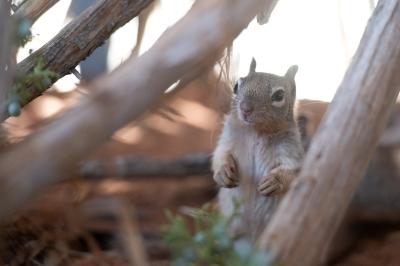
Feeding orphaned baby squirrels
The baby squirrels spent their first full day at Wild Friends learning to chew on rodent blocks (food pellets). Within four days, they were eating a slurry of food blocks along with their formula around five times a day. This was then cut to four times a day, where it stayed for a while because one of them was a bit smaller So, they all got a little extra to eat, to make sure that he would get enough.
[Birds, bunnies and snakes, oh my: 8 wild animal rescue stories]
Soon, caregivers started hiding bits of food that squirrels like to eat in the wild, so the babies would know how to find their own food when released. Sometimes the food was tucked into puzzle toys, buried or put where they’d have to climb to reach it.
They also got an antler to chew on (one that had been discarded naturally). And special kinds of pine cones that they needed to figure out how to open. The baby squirrels were growing up just as they should, and soon they were ready for the next step in their adolescence.
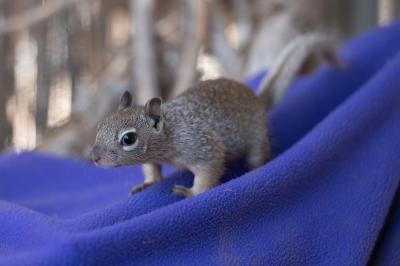
Getting ready to go back to the wild
These days the four baby squirrels play constantly, and if one gets annoyed about something, alarm calls (high-pitched squeaky sounds) follow. When they first arrived, they each weighed only around 46-48 grams, but now each of them tips the scales at more than 200 grams.
Recently the babies were moved to an outdoor enclosure. When it becomes very hard to catch them, that will be a good sign that they’re ready for life in the wild. When that time comes, baby squirrels are given a soft release, which means they’re brought to the release location, and the cage or carrier door is opened and left that way so they can come out on their own time. By then, they’ll be well-prepared to forage for their own food.
The very kind person who found the baby squirrels is prepared for them to be released back where they were born — on or near her property. Having grown up with each other, they are socially well-adjusted and not at all tame, which is important. It is safer for wild animals to stay away from humans and to be fully self-sufficient and able to feed and care for themselves without human intervention.
Soon, these little ones will be ready for the adventure of settling back into their home in the wild.
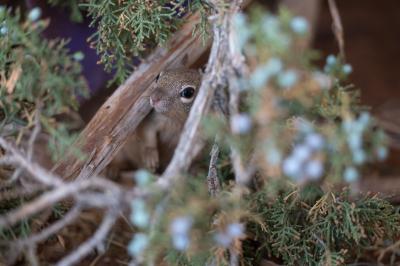
Help tell more success stories
By becoming a Best Friends member, you are helping even more animals — wild and otherwise — find their happy endings.
Read more
Welcoming our tiniest friends: 13 adoptable rats and mice
Meet the owls, rabbits, ravens and other wildlife at Best Friends